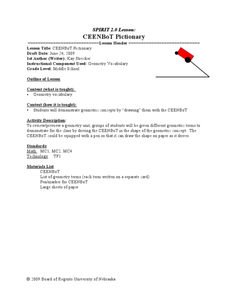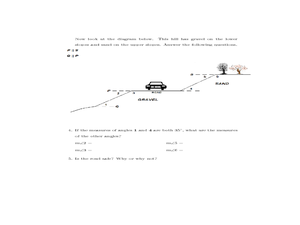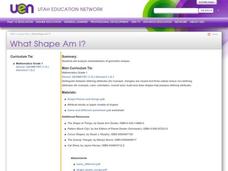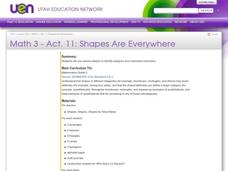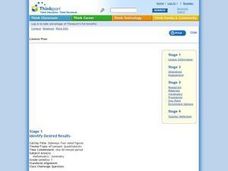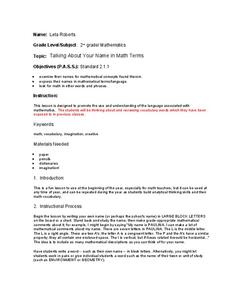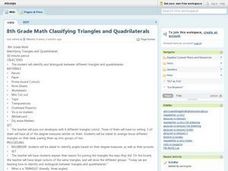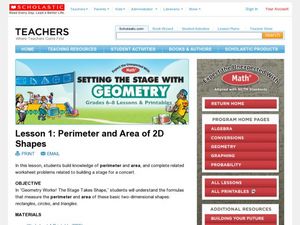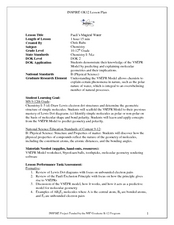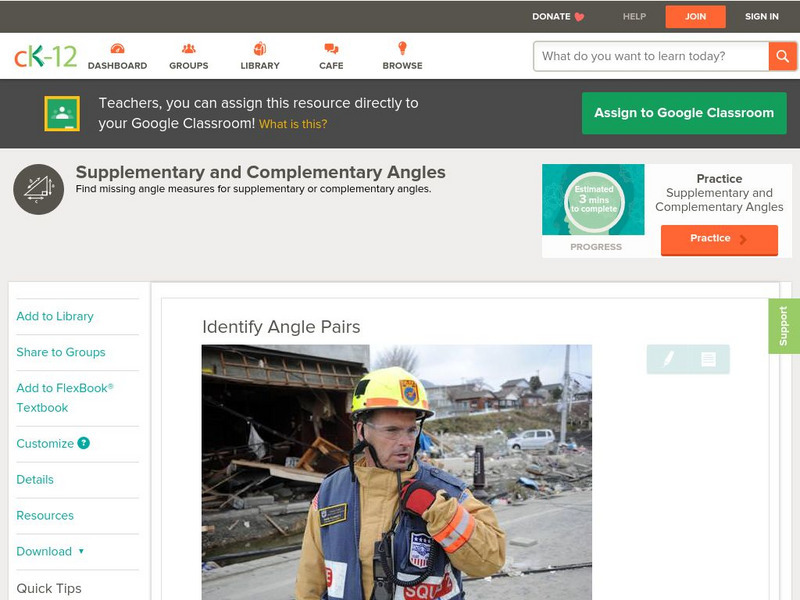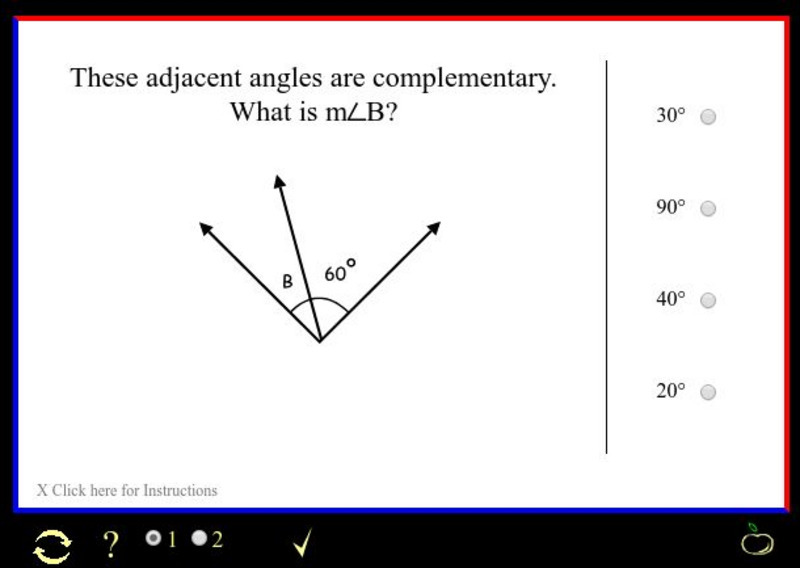Ohio Department of Education
Describing and Creating Plane Figures - Grade One
Young mathematicians draw, create, and describe different shapes using triangles. They discuss attributes of the original and created shapes. Pupils classify the created shapes and draw and write in mathematics journals to communicate...
Curated OER
CEENBoT Pictionary
Define and review math vocabulary. Use the CEENBoT to draw pictures that represent each vocabulary word. Pupils work in groups to play math pictionary.
Curated OER
Talking About Your Name in Math Terms
Add imagination and creativity to your math lesson plan. Young mathematicians investigate ways to express their names in mathematical terms. For instance, they can count the number of letters, analyze the geometric shapes of the letters,...
Curated OER
Quadrilateral Attributes
Young scholars classify quadrilaterals. In this quadrilateral lesson, students identify the characteristics of quadrilaterals. They write their findings in a journal. Young scholars use geoboards to create quadrilaterals from given...
Curated OER
The Tipping Point
Students rewrite word problems and solve using math. In this word problem lesson plan, students gather data and observe the data. They relate this process to the scientific method and math. They review their data to be able to answer...
Curated OER
What Shape Am I?
First graders analyze characteristics of geometric shapes. They identify, describe, and create simple geometric figures. They analyze characteristics of geometric shapes and determine the defining attributes of a circle,...
Curated OER
Shapes Are Everywhere
Third graders use various shapes to identify polygons and understand symmetry. They explore pattern blocks noticing their similarities and differences, then share with other team members. They draw 3 polygons in their journals and...
Curated OER
Measuring the Earth (Eratoshenes' method)
Sixth graders engage in problem solving, communicating, reasoning, and connecting to represent and solve problems, using geometric models.
Curated OER
Quadrilaterals: Four-sided Figures
Fifth graders engage in a variety of hands-on and technology-rich activities involving the classification of quadrilaterals. They utilize protractors and rulers to investigate the characteristics of various types of quadrilaterals. They...
Curated OER
Talking about your name in math terms
Students talk about mathematical language. In this talking about your name lesson, students use the letters in their own name to review math vocabulary and concepts.
Curated OER
Tangents, Secants, and Chords
In this tangents, secants and chords worksheet, 10th graders identify and solve 48 different problems that include using 3 different theorems for defining circles. First, they determine the area of each circle with C as the center and a...
Curated OER
2-D Polygons
Students investigate the concept of two dimensional polygons. They complete a vocabulary chart with the teacher or in independently. Students are shown various polygons in order to classify them and then asked to draw one of them from...
Curated OER
8th Grade Math Classifying Triangles and Quadrilaterals
Eighth graders engage in a instructional activity that is about classifying polygons with the focus being upon specific triangles and quadrilaterals. They conduct activities using cutouts for kinesthetic learners to help make connections...
Curated OER
How Are The Properties of Covalent Compounds Influenced By Chemical Bonding?
High schoolers work together to observe the bond lengths of single, double and triple bonds. They make their own predictions about the strength of the bonds and chemical reactions. They answer discussion questions to complete the...
Curated OER
Symmetry in Kaleidoscope Designs
Students define reflection, rotation and symmetry. In this symmetry instructional activity, students move the graph around the coordinate plane and identify the line of symmetry. They identify the different designs of a kaleidoscope.
Curated OER
How Tall Is It?
Students identify how tall a tree is. In this measurement lesson, students use "luminometers" to measure a tree and complete a data sheet.
Curated OER
Perimeter and Area of 2D Shapes
Learners find the perimeter and area of circles, triangles, and rectangles. In this perimeter and area instructional activity, the teacher gives students formulas for each shape and measurement and works through examples on the board....
Curated OER
Pauli's Magical Water
Students predict the shape of molecules using VSEPR theory. In this chemistry lesson, students differentiate a polar and nonpolar molecule. They discuss why water's polarity is very important.
Curated OER
Creating Bonds
In this creating bonds worksheet, students create 2-D and 3-D models of the molecular formula provided. Students complete a chart of information about the molecular formula given.
CK-12 Foundation
Ck 12: Geometry: Supplementary and Complementary Angle Pairs
[Free Registration/Login may be required to access all resource tools.] Identify angle pairs as complementary angles, supplementary angles or neither
CK-12 Foundation
Ck 12: Geometry: Angle Pairs
[Free Registration/Login may be required to access all resource tools.] Finding the measures of angle pairs including the measure of missing angles by using given information.
CK-12 Foundation
Ck 12: Geometry: Angle Pairs
[Free Registration/Login may be required to access all resource tools.] Identify angle pairs as supplementary, complementary or neither.
CK-12 Foundation
Ck 12: Geometry: Angles Study Guide
This study guide on angles covers key vocabulary, ways to name angles, how to measure them, the Protractor Postulate and the Angle Addition Postulate, types of angles, congruent angles, angle bisectors, and angle pairs. It is available...
Mr. Martini's Classroom
Mr. Martini's Classroom: Geometry Special Angle Pairs and Parallel Transversals
Students are challenged to identify and measure angles created by parallel lines and a transversal as well as complementary and supplementary pairs.

